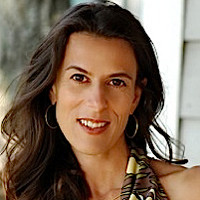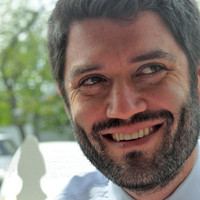Hannah Giorgis is a staff writer at The Atlantic. Her latest feature is "Most Hollywood Writers’ Rooms Look Nothing Like America.”
”In general, when we talk about representation, we talk about what we see on our screens. We're talking about actors, we're talking about who are the lead characters, what are the storylines that they're getting. And I'm always interested in that. But I'm really, really interested in power ... how it operates, and process.”
















